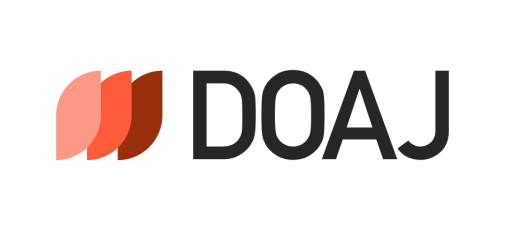Perbedaan Kinerja Guru Bimbingan dan Konseling dalam Menyelenggarakan Konseling Individual Ditinjau dari Latar Belakang Pendidikan dan Pengalaman Bekerja
Abstract
Abstract: The particular study aimed to determine the differences performance between school counselors in organizing individual counseling services in schools in terms of educational background and work experience. The research approach was descriptive survey through a descriptive comparative study design. The subjects were school counselor in Daerah Istimewa Yogyakarta, especially at Bantul Regency. The data analysis technique used two way ANOVA. Based on the statistical tests, the educational background and work experience did not significantly affect the performance of school counselors in providing individual counseling services in schools.
Abstrak: Penelitian ini bertujuan untuk mengetahui perbedaan kinerja guru Bimbingan dan Konseling (BK) dalam menyelenggarakan layanan konseling individual di sekolah ditinjau dari latar belakang pendidikan dan pengalaman bekerja. Pendekatan penelitian dengan descriptive survey melalui rancangan descriptive comparative study. Subjek penelitian ini adalah guru BK di Daerah Istimewa Yogyakarta (DIY), khususnya Kabupaten Bantul. Teknik analisis menggunakan rumus two way ANOVA. Berdasarkan hasil uji statistik diketahui bahwa latar belakang pendidikan dan pengalaman bekerja tidak berpengaruh secara signifikan terhadap kinerja Guru BK dalam menyelenggarakan layanan konseling individual di sekolah.
Keywords
Full Text:
PDFReferences
ABKIN. (2007). Penataan Pendidikan Profesional Konselor dan Layanan Bimbingan dan Konseling dalam Jalur Pendidikan Formal (Naskah Akademik). Bandung: ABKIN.
ASCA. (2012). ASCA School Counselor Competencies. Diambil 13 November, 2015, dari https://www.schoolcounselor.org/asca/media/asca/home/SCCompetencies.pdf
ASCA. (2008). Who are School Counselors? Diambil dari http://www.schoolcounselor.org/files/WhoAreSchoolCounselors.pdf
Barida, M., & Sutarno, S. (2016). Pengembangan Instrumen Evaluasi “Self Evaluation” dan “Peer Evaluation” Layanan Konseling Individual di Sekolah bagi Konselor. Jurnal Konseling dan Pendidikan, 4(2), 110–117. https://doi.org/10.29210/17200
Barida, M., & Sutarno, S. (2018). Studi Komparasi Kinerja Konselor dalam Layanan Konseling Individual Berdasarkan Self Evaluation dan Peer Evaluation. Jurnal Kajian Bimbingan Dan Konseling, 3(1), 33–40.
CACREP. (2014). Why Become a Professional Counselor? Diambil dari https://www.cacrep.org/home/why-become-a-professional-counselor/
Cavazos, Javier, J., Alvarado, V. I., Rodriguez, I., & Iruegas, J. R. (2009). Examining Hispanic Counseling Students’ Worries: A Qualitative Approach. Journal of School Counseling, 7(12).
Cronin, S. (2018). Does Having a School Counselor Matter?: A Dissertation Investigating School Counseling in Minnesota. University of Minnesota.
Epstein, J. L., & Van Voorhis, F. L. (2010). School Counselors’ Roles in Developing Partnerships with Families and Communities for Student Success. Professional School Counseling, 14(1), 1–14. https://doi.org/10.1177/2156759X1001400102
Fassinger, R. E., & Good, G. E. (2017). Academic Leadership and Counseling Psychology: Answering the Challenge, Achieving the Promise. The Counseling Psychologist, 45(6), 752–780. https://doi.org/10.1177/0011000017723081
Ford, A. D., & Nelson, J. A. (2007). Secondary School Counselors as Educational Leaders: Shifting Perceptions of Leadership. Journal of School Counseling, 5(19).
Geldard, K., & Geldard, D. (2009). Counselling Children : a Practical Introduction. London: Sage Publications.
Hann-Morrison, D. (2011). The Varied Roles of School Counselors in Rural Settings. Georgia School Counselors Association Journal, 18(1), 26–33.
Hayslip Jr, B., Schneider, L. J., & Shore, R. J. (1993). Accuracy of Counselor Age Estimates and Satisfaction with Counseling among Younger and Older Women. Journal of Applied Gerontology, 12(1), 100–113.
Hu, W., & Gan, X. (2017). Influence on Confident Personality of College Students with Early Left-behind Experiences and Peer Counseling. Dalam Proceedings of the 2017 International Conference on Innovations in Economic Management and Social Science (IEMSS 2017). Paris, France: Atlantis Press. https://doi.org/10.2991/iemss-17.2017.179
Jones, R. N. (2003). Basic Counseling Skills: A Helper’s Manual. London: Sage Publications.
Joy, R. M., Hesson, J. B., & Harris, G. E. (2011). Preservice Teacher Perceptions of School Counsellor Responsibilities/Perceptions des responsabilités du conseiller scolaire chez les professeurs futurs. Canadian Journal of Counselling and Psychotherapy (Online), 45(4), 386–405.
Jumail, J. (2013). Kompetensi Profesional dalam Perspektif Guru BK dan Peranannya Terhadap Pelayanan Bimbingan dan Konseling di SMA Negeri Se-Kota Padang. Konselor, 2(1), 250–255. https://doi.org/10.24036/02013211075-0-00
Kenny, M. E., Blustein, D. L., & Meerkins, T. M. (2018). Integrating Relational Perspectives in Career Counseling Practice. The Career Development Quarterly, 66(2), 135–148. https://doi.org/10.1002/cdq.12128
Kozlowski, K. A. (2013). Integrating School Counseling Core Curriculum into Academic Curriculum. Journal of School Counseling, 11(5), 1–35.
Leedy, P. D., & Ormrod, J. E. (2005). Practical Research. Pearson Custom.
Lodico, M. G., Spaulding, D. T., & Voegtle, K. H. (2010). Methods in Educational Research: From Theory to Practice (Vol. 28). John Wiley & Sons.
Mayes, R. D., Dollahide, C. T., & Young, A. (2018). School Counselors as Leaders in School Turnaround. Journal of Organizational and Educational Leadership, 4(1), 1–24.
Munro, H. (2007). The Implications of Teacher Perceptions of Career Guidance Programs and The Impact on Student Career Decisions. Georgia School Counselors Association Journal, 14, 6–13.
Neukrug, E. (2011). The World of The Counselor: An Introduction to The Counseling Profession. Nelson Education.
Octaviannand, R., Pandjaitan, N. K., & Kuswanto, S. (2017). Effect of Job Satisfaction and Motivation towards Employee’s Performance in XYZ Shipping Company. Journal of Education and Practice, 8(8), 72–79.
Olguin, D. L., & Keim, J. (2009). Using Stakeholders as Career Bridges to Advance Students’ Academic Performance: How Would You Like Your Stake? Journal of School Counseling, 7(22), 1–22.
Pankhurst, K. V. (2010). Learning by Experience, Work and Productivity: Theory and Empirical Evidence. Journal of Vocational Education & Training, 62(2), 103–122. https://doi.org/10.1080/13636821003690504
Purwanto, A., Rosra, M., & Yusmansyah, Y. (2014). Analisis Kinerja Guru Pembimbing dalam Penyusunan Program Bimbingan dan Konseling. ALIBKIN (Jurnal Bimbingan Konseling), 3(3).
Rock, W. D., Remley, T. P., & Range, L. M. (2017). Principal-Counselor Collaboration and School Climate. NASSP Bulletin, 101(1), 23–35.
Sherwood, H. (2010). Utilizing Staff Perceptions to Guide and Shape Future Program Planning. Georgia School Counselors Association Journal, 17(1), 15–25.
Stein, D. M., & DeBerard, S. (2010). Does Holding a Teacher Education Degree Make a Difference in School Counselors’ Job Performance? Journal of School Counseling, 8(25).
Studer, J. R., Diambra, J. F., Breckner, J. A., & Heidel, R. E. (2011). Obstacles and Successes in Implementing the ASCA National Model in Schools. Journal of School Counseling, 9(2).
Sugiharto, D. Y. P. (2001). Peran dan Kinerja Pembimbing dalam Peningkatan Mutu Layanan Bimbingan dan Konseling.
Sumerlin, T., & Littrell, J. (2011). The Heart of the School Counselor: Understanding Passion over the Span of a Career. Professional School Counseling, 14(4), 278–285. https://doi.org/10.5330/PSC.n.2011-14.278
Wood, S. (2009). Counseling Concerns of Gifted and Talented Adolescents: Implications for School Counselors. Journal of School Counseling, 7(1).
Yuksel-Sahin, F. (2009). The Evaluation of Counseling and Guidance Services Based on Teacher Views and Their Prediction Based on Some Variables. International Journal of Instruction, 2(1), 59–76.
DOI: http://dx.doi.org/10.17977/um001v4i12019p022
Refbacks
- There are currently no refbacks.
Copyright (c) 2019 Muya Barida, Alif Muarifah

This work is licensed under a Creative Commons Attribution-ShareAlike 4.0 International License.
Jurnal Kajian Bimbingan dan Konseling
ISSN 2503-3417 (online), ISSN 2548-4311 (print)
Email: jkbk.fip@um.ac.id
Find Jurnal Kajian Bimbingan dan Konseling on:
 This work is licensed under a Creative Commons Attribution-ShareAlike 4.0 International License |  |
View Visitor Stats








